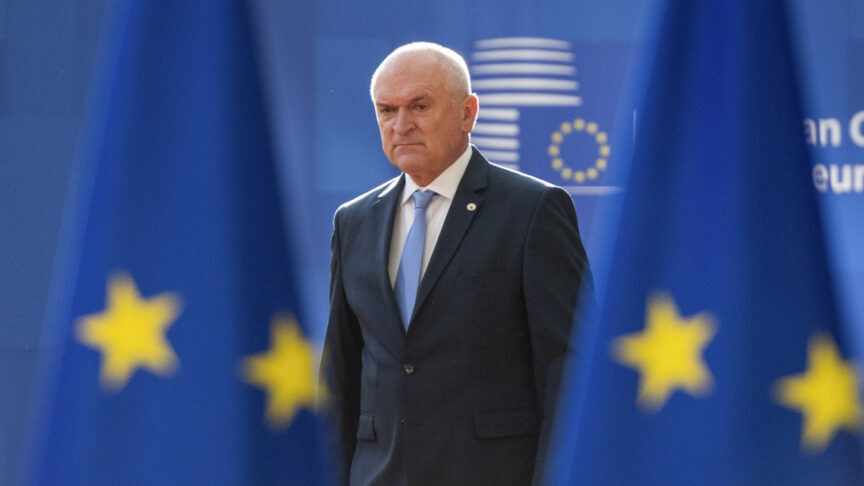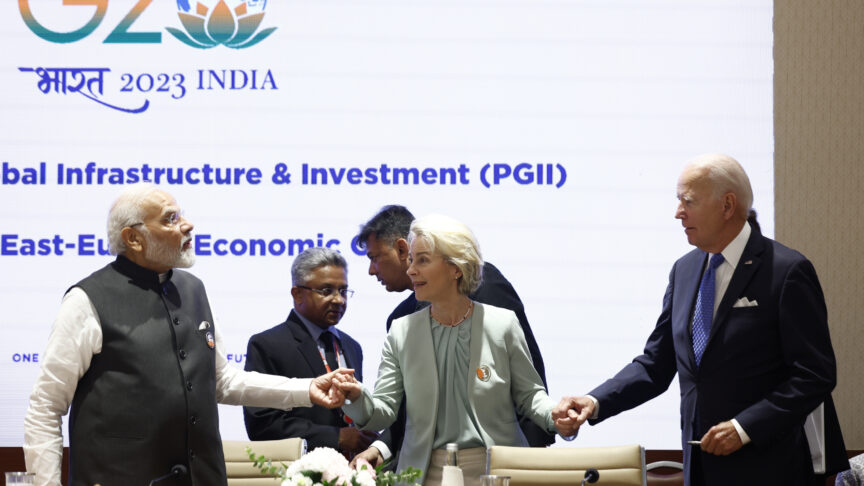Refugees pushing Germany to take the lead again
What stands in the way of a bigger German role in the shaping the European response is the effect of intergovernmentalism and the lack of strong ideas with the power to build a core consensus behind them.
Viewed from the angle of Germany’s new role in Europe, 2015 is becoming a remarkable year. It began with Chancellor Angela Merkel visibly leading the EU in the conflict with Russia over the war in Ukraine, and it continued in the exhausting negotiations over a third package for Greece. Now, with the refugee crisis escalating over the summer months, Germany again stands in the centre of another major challenge to the EU’s cohesion and its capacity to act.
This time, the attention German policy receives in Europe is not based on Berlin’s foreign policy or its fiscal power but on Germany’s attraction. The country has become the principal destination for migrants from the EU, from around the EU, and for asylum seekers from regions of war and crises. Current estimates of the Federal Ministry of the Interior forecast about 800.000 refugees seeking asylum in Germany for 2015. While Italy, Greece, and Hungary bear the biggest burden of new arrivals, Germany, Austria and Sweden are seeing the biggest inflow, with Germany far ahead in absolute numbers. When in the spring of 2015 the Italian government pushed for changes in the European approach, Germany was supportive, not more. Now, the problem to deal with rapidly rising numbers of refugees, has become a challenge to Germany.
Germany’s significance to the issue, however, does not primarily derive from numbers. Rather, it is based on the obvious determination of government and society to accept again an unusually high number of asylum seekers, reminiscent of the many refugees seeking protection in Germany during the Yugoslav wars of the 1990s. Surely, this position will not be sustained should numbers run that high for several years in a row, but for the moment the German attitude seems quite remarkable in a European political environment that is increasingly shaped by a EU-critical populism. The willingness to ease the process notably for refugees from Syria in light of local anti-asylum manifestations and right wing violence has been acknowledged with respect internationally – Oxford’s Will Hutton making that point in the Guardian illustrates that perception well. Unlike other member states seeking to constrain the mobility regime of Schengen, Chancellor Merkel and her grand coalition government have been defending open internal borders and have repeatedly appealed to other capitals to cooperate more deeply on issues of immigration and asylum.
What stands in the way of a bigger German role in the shaping the European response is the effect of intergovernmentalism and the lack of strong ideas with the power to build a core consensus behind them. Already in April, my colleague Olaf Böhnke saw a clear case for Germany to drive the development of a common EU policy on asylum and immigration. In real terms, however, too little has changed. Berlin has given in to voluntary contingents among member states for the redistribution of refugees, where it should have insisted on the Commission proposal of a quota system. Earlier, Germany was behind the tripling of funds for the Triton mission, and is now backing the idea of EU supported reception centres to help member states in the registration and initial treatment on new arrivals, where it should think further about a common border regime and implementation force for the Schengen area. Germany is advocating an agreement on a list of “safe countries” of origin to facilitate the administration of asylum applications, but is constrained by unanimity requirements in this area. Like other member states, Germany needs to improve its policy of asylum. Economically motivated migration has to be kept apart from the asylum process. To facilitate this, the country needs an immigration legislation that reflects the actual migratory patterns as well as the domestic demand for labour.
In light of the current divisions among member states, Angela Merkel has referred to Schengen as an area of “reinforced cooperation” – which carries a undertone of bitter irony in light of the current political rifts and the fact that countries such as the UK, Ireland and Denmark have simply opted out of the scheme altogether. Reinforcing Schengen would indeed require German EU policy to push hard for a common immigration and asylum policy, a fair share of member states in accepting refugees, common instruments with common funding to guard and secure Europe’s frontiers but also to deal effectively and in a humane way with migrants. Berlin would have to build a pressure group of member states to overcome the current deadlock. Sinister warnings, coming from Thomas de Maizière, the Interior Minister, will not suffice: “In the long run, there can be no Schengen without Dublin …. In the absence of a genuine European asylum policy, borders without border checks will not be viable in the long run.“ In other words, Schengen will fall apart if it will not be strengthened. That is the challenge to Berlin. Progress will likely be shaped by the amount of resources made available by Germany and its partners under a common policy.
There also is a foreign policy dimension to the topic, which has not been properly addressed by Berlin policy actors so far. Evidently, the on-going fighting in Syria and Iraq, overflowing refugee camps in neighbouring countries, and the lack of any perspective for co-existence of different ethnic or religious groups in a probably disintegrating Middle East is driving the refugee flows to Europe. Thus, Europe has to do more to affect the conflict situation. Where it cannot end the fighting, Europe needs to provide faster, better, and more comprehensive shelter for those people able to escape the wars, working intensively with countries in the region still carrying the major burden of refugees. This should become a priority issue for German and for European foreign policy. Berlin should make it a strong issue in the review process, best supported by its own capacity building together with like-minded member states. In principle, the need for better capabilities has been recognized in the review process Foreign Minister Frank-Walter Steinmeier launched in 2014. Implementation would need closer cooperation between the foreign ministry and the ministries of interior and defence. The lack of it weakens the German position and Europe’s response.
The European Council on Foreign Relations does not take collective positions. ECFR publications only represent the views of their individual authors.


